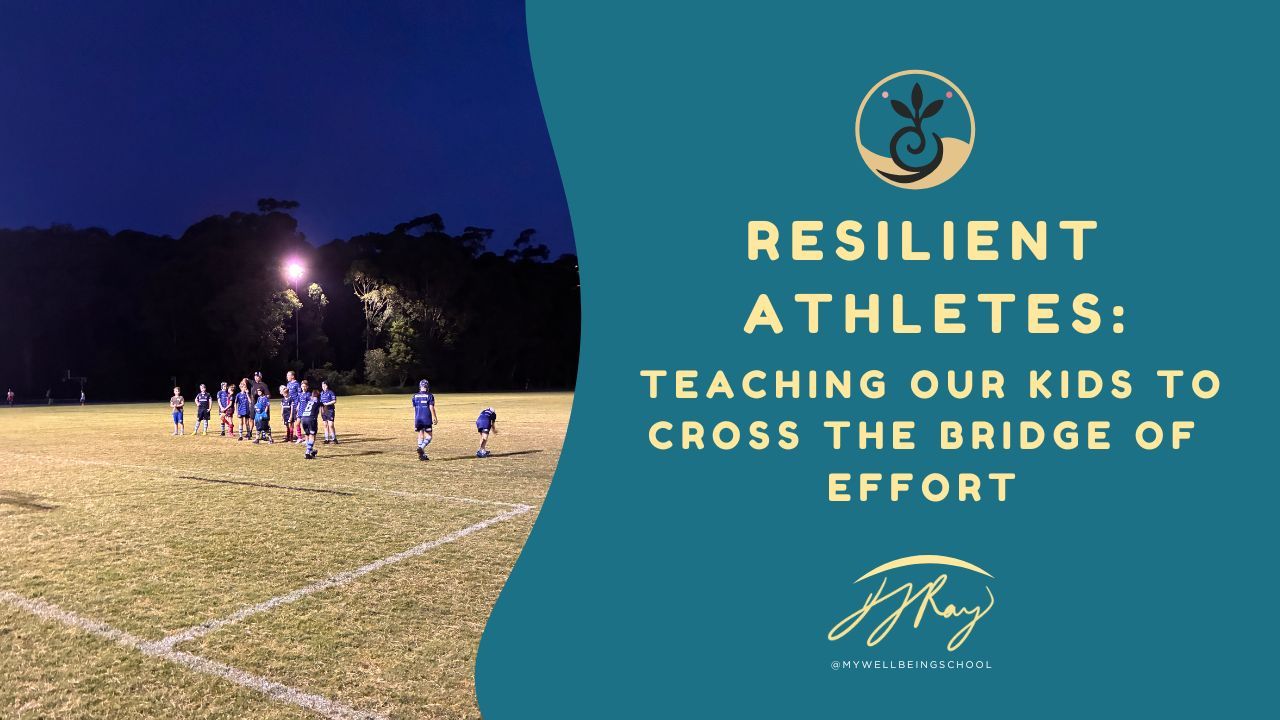Resilient Athletes: Teaching Our Kids to Cross the Bridge of Effort

Resilient Athletes: Teaching Our Kids to Cross the Bridge of Effort
The other evening, my 10-year-old son Joshua tried rugby for the first time.
As we were getting ready to head out, he said his tummy hurt. Any parent knows that line—it could be nerves, a genuine ache, or just a quiet plea to avoid the unfamiliar.
I remember that feeling. I still get that feeling when I’m nervous about trying something new. And I also know—it usually fades once you dive in.
I told him I understood how he felt and that I was proud of him for showing up. I reminded him that the tummy flutter was just a mix of nerves and excitement, and that once he got moving, it would feel better.
The Quiet Foundations of Resilience
At the field, I got chatting with another dad whose son was dealing with separation anxiety. We shared a look that said, yep, been there.
These quiet, in-between moments don’t always look like resilience—but they are its foundation.
It’s how we show up for our kids, helping them stand on their own two feet while quietly reassuring them:
“You’ve got this—and I’m right here if you need me.”
When New Feels Hard
Joshua got through the session. He went through the motions. But on the way home, he said:
“I’m not that keen on it.”
I gently asked, “What didn’t you like about it?”
Eventually, we uncovered the truth:
He felt lost.
He enjoyed the warm-up, the running, and the ball handling. But when it came time for team drills, he felt like the odd one out.
He didn’t know the rules.
He didn’t know the drills.
It was dark.
It was new.
And new is hard.
“Interest Comes After Effort”
There’s a quote that always stuck with me:
“Interest comes after effort.”
It’s easy to forget that learning anything new—whether it’s a sport, a subject, or a skill—can feel frustrating and awkward at first.
So why do we do it?
Because we imagine the end result.
We see someone sprinting down the field or scoring a try and think:
“That looks fun—I want to be able to do that.”
But the only way to get there is by walking through the door of discomfort first.
The Magic of the Process
If we can help our kids enjoy the process, that’s where the real magic is made:
-
The trying
-
The learning
-
The not-yet-mastered moments
Those tiny victories—showing up despite the nerves, improving just a little, making a new connection—build confidence and make it more likely our kids will stick with it.
And this matters.
According to the Aspen Institute’s Project Play, 70% of kids quit sports by age 13.
Why? Because it stops being fun.
It becomes too serious, too competitive, too focused on performance over personal growth.
Performance and Personal Growth
Both performance and personal development matter. But often, even as adults, we avoid trying new things because we’re afraid to fail publicly.
Trying Brazilian jiu-jitsu for the first time was exactly like that for me. I felt lost, nervous, and a bit ridiculous in those early months.
But I wanted to learn. The small victories, the friendships, and the personal growth—that’s what kept me going.
And then I look at my 3-year-old. He jumps into new things without hesitation. For him, the new is where the fun begins.
Keeping a Growth Mindset
What if we could hold onto that mindset as we grow?
That growth-focused, failure-welcoming, effort-first mindset?
Our development—and our resilience—would be through the roof.
Just Showing Up
Sometimes, resilience is just turning up.
It’s walking into the unknown, feeling a bit out of place—and doing it anyway.
Because effort counts.
And sometimes, the magic you’re looking for is waiting just on the other side of awkward.

